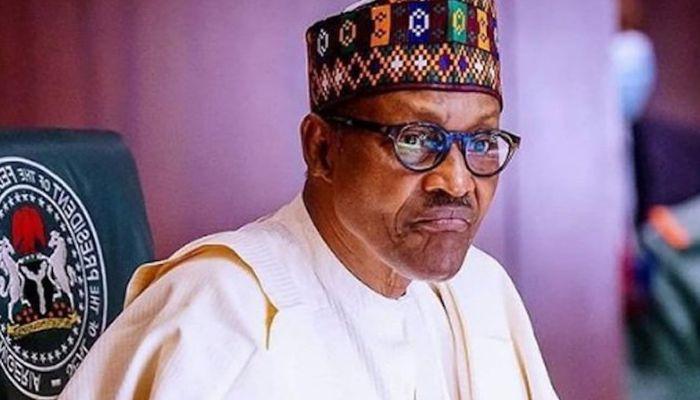In the quiet corridors of a private London clinic, Muhammadu Buhari; soldier, statesman, austere figure of Nigerian history, took his final breath. Aged 82, he departed this world as he had lived much of his public life: without flourish, without noise, yet leaving behind a landscape forever altered by his shadow.
Buhari’s death on Sunday afternoon closes the final chapter of a life that spanned war and peace, dictatorship and democracy, acclaim and acrimony. His life was a pendulum swing between Spartan rigor and stoic detachment, a paradoxical dance of proximity and absence from the soul of the nation he governed, and sometimes distanced.
A Discipline Forged in Battle
Born in the dusty savannah of Daura in December 1942, Muhammadu Buhari was nurtured by tradition and baptized in the fire of national service. At nineteen, he joined the Nigerian military, the cauldron that would mold his worldview. He served in the brutal Biafran War, emerging with an unwavering belief in national unity and the supremacy of order; an ethos that would later define his every step. As military governor, oil minister, and eventually Head of State after a 1983 coup, Buhari became a symbol of martial resolve. His short-lived regime from 1983 to 1985 remains etched in memory for the “War Against Indiscipline” – a crusade for public rectitude that compelled schoolchildren to queue at bus stops and civil servants to arrive before dawn. Yet, its iron glove throttled liberties, silencing dissent and jailing journalists. In a twist of poetic justice, Buhari was himself toppled in 1985 and detained by the very military establishment he once helmed. He would taste the bitterness of solitary confinement and the irony of authoritarian fate.
The Civilian Pilgrim
After years in quietude, Buhari returned under General Abacha’s regime to head the Petroleum Trust Fund; a position through which he regained a reputation for prudence, even as he remained an emblem of severity. Then came his democratic transformation; or perhaps more accurately, his democratic reincarnation. Between 2003 and 2011, Buhari knocked thrice at democracy’s door, and thrice he was turned away. His supporters, driven by near-messianic zeal, kept faith. And in 2015, Nigeria opened the gates. Buhari became the first man in its history to defeat an incumbent president in a general election.
The slogan was change. The mission: integrity, security, and growth. He came cloaked not in the khaki of martial power, but in the agbada of a civilian statesman. And yet, that khaki never quite left his gait.
The President of Paradoxes
His presidency was a study in contrast. Infrastructure blossomed under his watch; rail lines crept across neglected expanses, and agriculture received new breath. International partners lauded his anti-corruption reforms, albeit with polite caution. But for every ribbon cut, there was a headline of despair. His silence in the face of national tragedies, from mass abductions to police brutality, bred a sense of detachment. To some, he was a symbol of calm amid chaos; to others, a ghostly absentee in the face of crisis. The promise of transparency often gave way to opacity, especially around his health; long medical absences in London turning into metaphors for a government out of reach. He led, it seemed, not from the pulpit of populism, but from the high mountain of contemplation – seldom descending to the footpaths where anguish and agitation brewed.
Legacy in the Balance
What shall we call Buhari? A reluctant democrat or a reformed despot? A redeemer or a relic? The truth lies somewhere between. He brought decorum to the presidency but failed to bring urgency to reform. He inspired fidelity among loyalists but rarely warmth. Even his famous declaration – “I belong to everybody, and I belong to nobody” – revealed the philosophical distance he maintained, a kind of transcendental detachment from the messiness of politics. His successor, Bola Ahmed Tinubu, called him a patriot “who placed the country above personal interest.” Others recall him as the president who watched, not always as the house burned, but often as it smoldered. And yet, few deny the imprint he left. His story, like Nigeria’s, is full of contradiction; noble ambition constrained by inherited fragility, personal integrity undermined by systemic inertia.
A Nation Mourns Its Stoic Sentinel
The world mourns. India’s Prime Minister Modi declared that 1.4 billion Indians grieve with Nigeria. Condolences flowed from East Africa to the UN, from Addis Ababa to the chambers of Turtle Bay. Heads bowed in memory of a man who wielded quiet influence and moved the levers of diplomacy with an unshakable calm. Vice President Kashim Shettima leads the delegation to escort Buhari’s remains back to Daura, where a state burial is planned for July 14. It will be in the same soil that bore him, that the man who belonged to nobody and to everybody will be laid to rest.
Final Notes on the Scroll of Time
Muhammadu Buhari’s story is not a tale of saints and sinners. It is the story of a man who embodied Nigeria’s perennial quest for balance; between strength and softness, control and compassion, order and freedom. He was not the savior many hoped for, nor the villain some feared. He was something more difficult to accept: a man of good intentions and imperfect execution. He tried. He faltered. He endured. In death, as in life, Muhammadu Buhari invites us not to worship, nor to scorn, but to reflect – deeply, honestly – on the price of leadership and the burdens of history. He is survived by his wife, Aisha Buhari, and their children. The flags fly at half-mast. The debates resume. The legacy lives on. For the man who once boasted that he belonged to everybody, and to nobody; now, he belongs to history.





